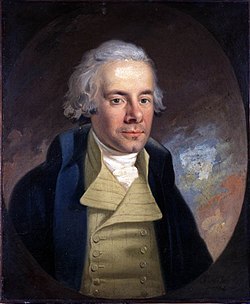William Wilberforce Quote
You may choose to look the other way but you can never say again that you did not know.
William Wilberforce
You may choose to look the other way but you can never say again that you did not know.
Tags:
abolition, accomplish, christian, great britain, heard, hope, inspirational, love, peace, slavery
Related Quotes
So it is always preferable to discuss the matter of veganism in a non-judgemental way. Remember that to most people, eating flesh or dairy and using animal products such as leather, wool, and silk, is...
Gary L. Francione
Tags:
ableist, abolition, abolitionist, ahimsa, animals, classism, climate change, easy, education, exploitation
We should always be clear that animal exploitation is wrong because it involves speciesism. And speciesism is wrong because, like racism, sexism, homophobia, anti-semitism, classism, and all other for...
Gary L. Francione
Tags:
ableist, abolition, abolitionist, ahimsa, animals, classism, climate change, education, exploitation, extinction
Ethical veganism results in a profound revolution within the individual; a complete rejection of the paradigm of oppression and violence that she has been taught from childhood to accept as the natura...
Gary L. Francione
Tags:
ableist, abolition, abolitionist, ahimsa, animals, classism, climate change, education, exploitation, extinction
Being vegan is easy. Are there social pressures that encourage you to continue to eat, wear, and use animal products? Of course there are. But in a patriarchal, racist, homophobic, and ableist society...
Gary L. Francione
Tags:
ableist, abolition, abolitionist, ahimsa, animals, classism, education, exploitation, francione, heterosexism
What, to the American slave, is your Fourth of July?I answer: a day that reveals to him, more than all other days in the year, the gross injustice and cruelty to which he is the constant victim. To hi...
Frederick Douglass
Tags:
abolition, activism, agitation, dissent, human rights, liberties, politics, power, radicalism, rights
About William Wilberforce
William Wilberforce (24 August 1759 – 29 July 1833) was a British politician, philanthropist, and a leader of the movement to abolish the Atlantic slave trade. A native of Kingston upon Hull, Yorkshire, he began his political career in 1780, and became an independent Member of Parliament (MP) for Yorkshire (1784–1812). In 1785, he underwent a conversion experience and became an Evangelical Anglican, which resulted in major changes to his lifestyle and a lifelong concern for reform.
In 1787, Wilberforce came into contact with Thomas Clarkson and a group of activists against the transatlantic slave trade, including Granville Sharp, Hannah More and Charles Middleton. They persuaded Wilberforce to take on the cause of abolition, and he became a leading English abolitionist. He headed the parliamentary campaign against the British slave trade for 20 years until the passage of the Slave Trade Act 1807.
Wilberforce was convinced of the importance of religion, morality and education. He was involved in causes and campaigns such as the Society for the Suppression of Vice, British missionary work in India, the creation of a free colony in Sierra Leone, the foundation of the Church Mission Society and the Society for the Prevention of Cruelty to Animals. His underlying conservatism led him to support politically and socially repressive legislation, and resulted in criticism that he was ignoring injustices at home while campaigning for the enslaved abroad.
Wilberforce played a central role in the campaign for the complete abolition of slavery and continued his involvement after 1826, when he resigned from Parliament because of health issues. That campaign led to the Slavery Abolition Act 1833, which abolished slavery in most of the British Empire. Wilberforce died just three days after hearing that the passage of the act through Parliament was assured. He was buried in Westminster Abbey, close to his friend William Pitt the Younger.
In 1787, Wilberforce came into contact with Thomas Clarkson and a group of activists against the transatlantic slave trade, including Granville Sharp, Hannah More and Charles Middleton. They persuaded Wilberforce to take on the cause of abolition, and he became a leading English abolitionist. He headed the parliamentary campaign against the British slave trade for 20 years until the passage of the Slave Trade Act 1807.
Wilberforce was convinced of the importance of religion, morality and education. He was involved in causes and campaigns such as the Society for the Suppression of Vice, British missionary work in India, the creation of a free colony in Sierra Leone, the foundation of the Church Mission Society and the Society for the Prevention of Cruelty to Animals. His underlying conservatism led him to support politically and socially repressive legislation, and resulted in criticism that he was ignoring injustices at home while campaigning for the enslaved abroad.
Wilberforce played a central role in the campaign for the complete abolition of slavery and continued his involvement after 1826, when he resigned from Parliament because of health issues. That campaign led to the Slavery Abolition Act 1833, which abolished slavery in most of the British Empire. Wilberforce died just three days after hearing that the passage of the act through Parliament was assured. He was buried in Westminster Abbey, close to his friend William Pitt the Younger.
